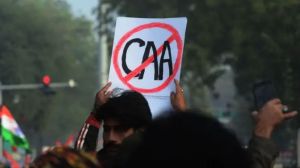Goodwill, greed and the righting of history
Neither agitating medical students, nor opportunist political parties or an unscrupulous corporate sector can bar access to equal opportunity for the backward classes

In the ongoing fracas on reservations, the adamant agitating students have failed to see that they have gained a lot, and lost nothing. The fact that the government was sympathetic to their cause should not be construed as the weakness of the establishment. The role played by the corporate sector, event managers and PR agencies in keeping alive the agitation is now an open secret, which needs to be further probed. These agencies should be liable to the laws that punish those abetting disruption of essential services.
It was not compulsory for the government—nor was it envisaged in the constitutional provisions—to compensate the loss of seats in the open category. It was merely a goodwill gesture. Otherwise, the issue could have been closed even without providing extra seats. But the greed of the students, who are now being used as puppets in the reservation drama, seems to be unending. The corporate sector is looking to further the agitation only to pre-empt the government from bringing in any legislation for reservation in the private sector.
Now the medical students, who were blaming politics and politicians, are engaging in real politics to undermine all the benefits that are likely to accrue to the reserved categories. At the end of the day, the agitation smacks of an upper caste stageshow; for name’s sake, it is called a medical students’ agitation.
As of now, the government has given a sufficiently long rope to the students; they do not deserve any more. The undue importance they have received has given them the audacity to demand establishment of a commission to review the reservation issue. The underlying—and now publicly proclaimed (after the promise to raise seats)—stand of this new brand of casteists is clear: To abolish reservations altogether and grab all the seats for themselves. Such is the greed of the new generation in an unequal society like India.
INTERESTINGLY, the cacophony of the reservation drama seems to have cleverly sidelined the law to ensure reservations in private educational institutions. The law that will be enacted by the Centre should fully reflect all the provisions envisaged in the 93rd amendment. The issue of ensuring reservations in private educational institutions in Central government-controlled areas should be part of the new law.
Not many of the urban elite know that all the states, particularly the southern states, have already had reservations for backward classes in educational institutions since the early 20th century. These states now need to enact legislations for implementing Article 15 (5) by enacting enabling laws for reservations in private institutions.
The country will witness real equality of opportunity, when the elite institutions (albeit reluctantly or with another drama a la medical students) open their doors to the socially disadvantaged. The law should also insert a clause providing for compulsory rural service for doctors.
Chronology tells us that the delay in implementing the 93rd amendment is a reason for the existing cacophony. While Article 15 (5) was inserted in January 2006, the issue came into prominence only after a lapse of two months, the time taken to prepare the draft law. Since the elections came into play, the overtones of what forms the constitutional obligation of the government to bring in enabling provisions were smeared as pre-poll politicking. And then we had the stage shows called medical agitations.
The role played by the Left in the entire reservation imbroglio was crucial and will be the turning point in the history of bringing equality of opportunity to the backward classes to a full circle. The elections have shown that people prefer the Congress only when there is no viable Left.
A FEW things come in the way of the reservation issue being rounded off. The parties and persons who supported and voted in the 93rd amendment and then joined the cacophonous corporate bandwagon of anti-reservation need to be pinned down for their doublespeak.
As such, for some parties, it seems to be the caste of the individual leaders that drove them to the agitators, rather than the professed position of their party in Parliament during the voting for the 93rd amendment. The very people who were demanding reservations even in minority institutions have joined the anti-reservationists.
BJP leader L K Advani has reached political brinkmanship by advocating a review of the reservation system, voicing the concerns of agitating medicos. As the cat is out of the bag, the BJP has reinforced its position as a party of the upper caste elite. Now the Bharatiya Janata Party can safely drop the word ‘Janata’, since it no longer represents them. Such a turnaround for that party from the January 2006 voting on 93rd Amendment.
The doublespeak of the Samajwadi Party—that reservations were brought in as an election issue—is misplaced. As a party claiming to represent the socially disadvantaged, it should have been in the forefront of action in supporting the reservations. As the issue was resolved with the intervention of the Left, there should be no heartburn for them, at least.
The last thing that comes to my mind after watching the antics of stage-managed shows and blood-inked calligraphies of the young urban elite students is that there is an urgent need to make those people understand the unimaginable sufferings and criminal neglect of Dalits, Tribes and Backward class people down the ages. There should be some compulsory teaching of Social History of (i) Dalits (ii) Tribes and (iii) Shudras (backward castes) at the level of higher learning. It should have field visits and studies into the life of these communities and should be compulsory!
The author is national secretary, CPI



- 01
- 02
- 03
- 04
- 05




























